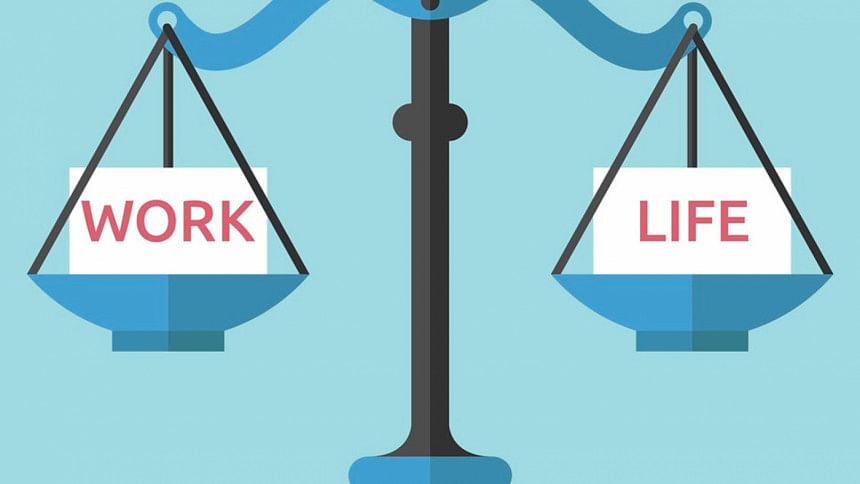The case for a four-day workweek

Nordic countries have earned a reputation for experimenting, and in many cases succeeding, in taking their societies beyond traditional economic systems, thereby driving them towards being progressive welfare states. In December 2019, the world was introduced to its first all-female coalition cabinet in Finland. At 34, one of the first items on Prime Minister Sanna Marin's wish list had been a plan to consider a four-day workweek for the Finnish.
As the youngest elected leader of the world, Ms Marin stated in January 2020 that a four-day workweek comprising six hours of work per day would allow the citizens to have a better work-life balance and subsequently to enhance their collective quality of life, shifting the focus from a productivity-based economy to one that augments a sustainable standard of living. In her words, "people deserve to spend more time with their families, loved ones, hobbies and other aspects of life, such as culture. This could be the next step for us in working life."
Given the urgent need to reimagine a post-pandemic world that prioritises public health as a macroeconomic necessity, this idea sounds progressive, purposeful and positive. Who wouldn't like a three-day weekend? Nevertheless, it is equally important to examine what the data indicates regarding such a model.
In November 2018, Perpetual Guardian, a New Zealand-based estate management firm, adopted a four-day workweek policy which made global headlines—while productivity, measured in terms of output per employee per unit of time, remained unchanged, other behavioural metrics saw a steep shift towards the right direction. The percentage increases across key human resource indicators such as work-life balance (24 percent), commitment levels (20 percent), leadership skills (22 percent) and a sense of empowerment (20 percent) indicated that the model enhanced the scope for a more motivated work culture, while simultaneously driving positive business growth.
Microsoft Japan conducted its own trial of a four-day workweek in August 2019. Some 2300 of its employees were given paid leave on Fridays for the month, and the results were remarkable. In one month, productivity levels rose by 40 percent. Furthermore, Microsoft Japan also witnessed a fall in costs—paper usage went down by 59 percent, whereas electricity consumption reduced by 23 percent. Aiding this shortened workweek model were corporate encouragements to streamline meeting times, promote online collaborations and urge employees to coordinate on projects. The pandemic has enhanced the scope for similar trials across other organisations.
In December 2020, Unilever New Zealand announced that its employees would work four days a week and be paid for five as part of a yearlong trial. The prime minister of New Zealand, Jacinda Ardern, has also echoed similar sentiments regarding shortened workweeks. Falling long-run average costs (defined as economies of scale) is a primary consideration for firms engaging in this model, and with subsidiary effects on employees being overwhelmingly positive across participating firms, clusters of certain niche organisations are expected to institute similar shortened workweek schemes on a trial basis.
In addition to analysing quantitative metrics, it is equally important to recognise a deeper philosophical issue here. As the world moves forward, and traditionally agrarian nations such as Bangladesh take an even more integral part in the global political economy, should we, as stakeholders, focus on making societies richer rather than happier? If it is the latter, then the realisation of giving people more time with their families and prioritising welfare over profits or growth must take institutional precedence. And it is this very aspect that the prime ministers of New Zealand and Finland ask us to consider when considering a four-day workweek.
As Nobel Prize-winning economist Joseph Stiglitz puts it, the obsession with GDP by political actors means that we tend to ignore the most important unit of the economy, more precisely, the average citizen or worker. Standards of living should not therefore be solely determined by the average income for a society driven by productivity. It is important, especially now, to focus on ensuring that the quality of life for general citizens is improved and continuously so. Some may ask, do shortened workdays actually benefit the average citizen? The answer is: we simply don't know yet.
For a country like Bangladesh, the challenge comes not across urban organisations such multinational corporations or tech companies, but rather in traditional service industries and low-wage activities such as the textiles industry. Think of it this way: if banks operated on a four-day basis, it would be nearly impossible to meet the public demand for financial services in the country. Or put on a more national scale: if factories reduced their operations by a day, there would be a complete mismatch of demand and supply considerations for global RMG exporters, leading to production being shifted away from Bangladesh. These are questions that are yet to be given thought to; perhaps the accentuation of the digital economy is the best place to start for us. However, across nations with low populations and tertiary economic foundations, such as Finland, the idea of a four-day workweek should indeed be encouraged and tested further—if the model succeeds, it can be given a trial run at least across major corporations in developing economies such as Bangladesh.
And beyond all this, there is then the issue of environmental protection. It is no secret that unfettered production and continuous abuse of our collective natural resources is a direct by-product of our obsession with profitability. Reducing working hours has already proven to be a strong driver of increasing productivity and employee wellness, but equally importantly, it enhances the scope for sustainable business models which can tangibly contribute towards reducing carbon emissions in line with the goals set forth by the Paris Agreement.
In all probability, this may sound utopian or too good to be true, yet it is my humble opinion that we as societies have forgotten to prioritise citizens' well-being and rather shifted our focus towards achieving numbers that make the financial statements of our national economies look good on paper. A classic example of this is how a country like Bangladesh, even with its impressive 7 to 8 percent growth rates, is witnessing its highest level of income inequality in its independent history—this cannot, and must not, be the sole indicator of progress.
As remote working becomes a norm and global unemployment levels hit concerning numbers, it is the obligation of global leaders to rethink mechanisms that prioritise public welfare. As we move forward, we are certain to witness a combination of in-person and remote work, particularly for those in the tertiary industry, and the pandemic has taught us the importance of prioritising the wellbeing of both workers and the environment as organisational necessities.
There are more challenges to a four-day workweek than answers at this point in time. But it may be worthwhile for certain leading companies, especially large corporations which unquestionably must bear the brunt for pushing the world towards a climate crisis, to experiment in enhancing workers' welfare through such schemes. And one looks with hope and anticipation as to what effects a four-day workweek has on the citizens of Finland or New Zealand, if their governments do indeed decide to move forward with this agenda on an institutional scale.
Mir Aftabuddin Ahmed is a Toronto-based banking professional. Email: [email protected]

 For all latest news, follow The Daily Star's Google News channel.
For all latest news, follow The Daily Star's Google News channel. 



Comments